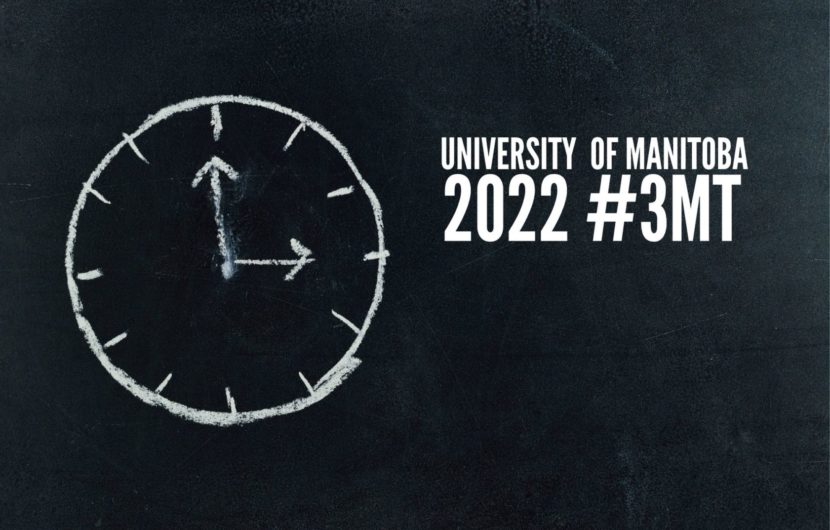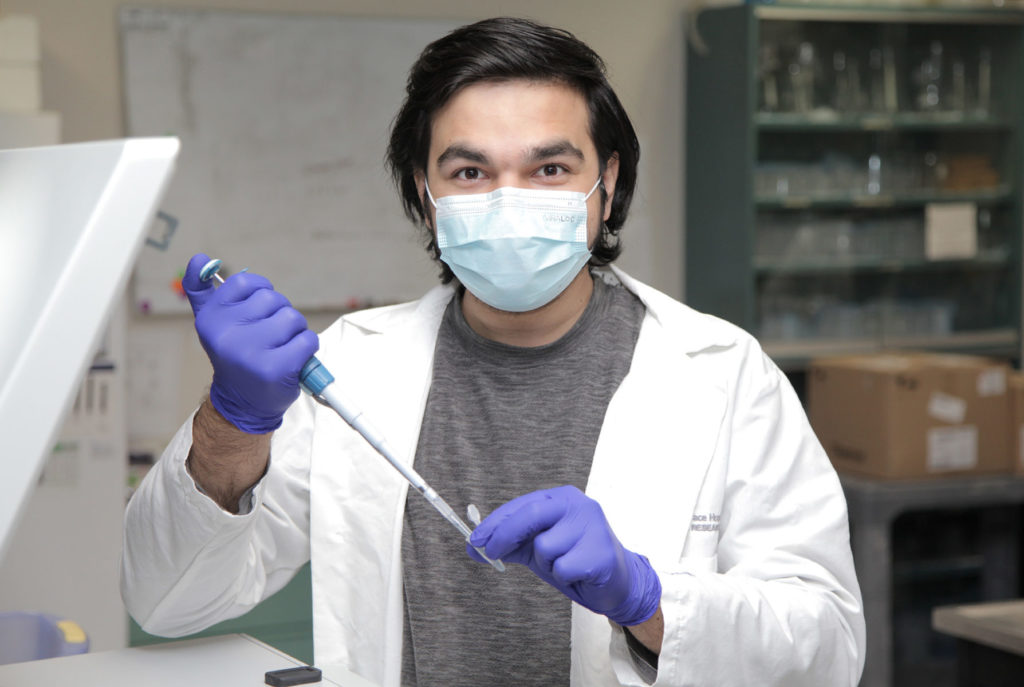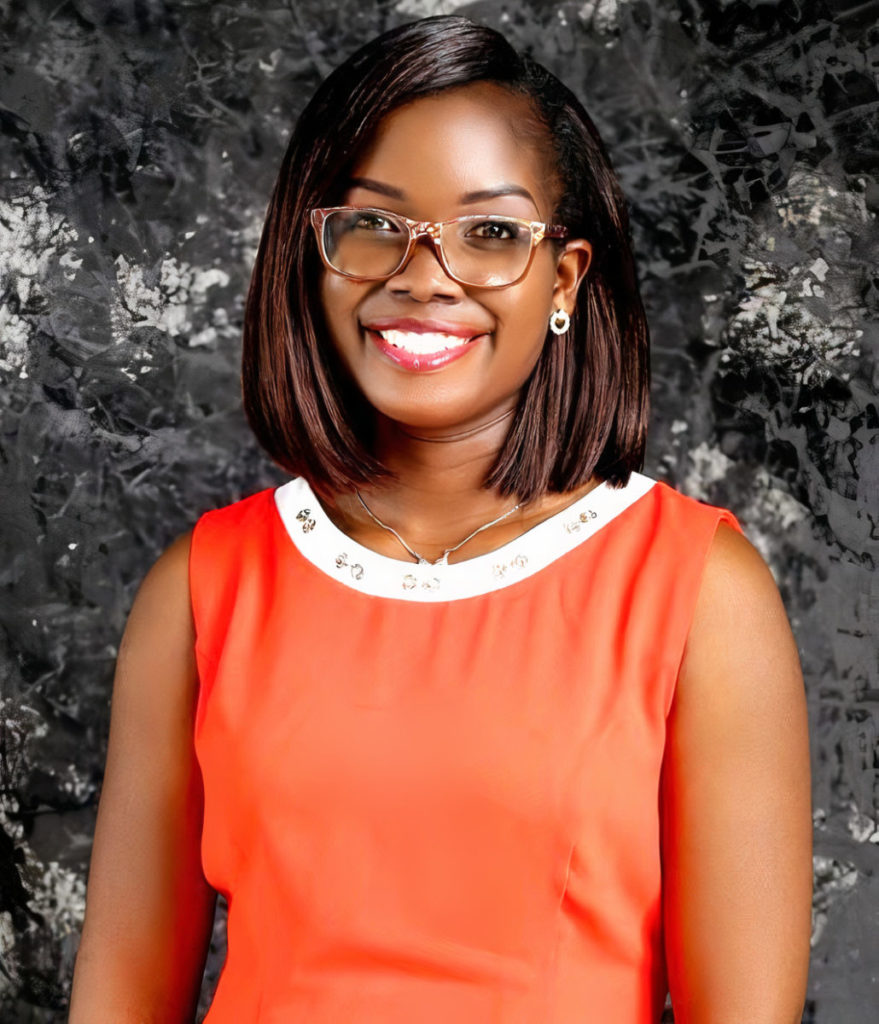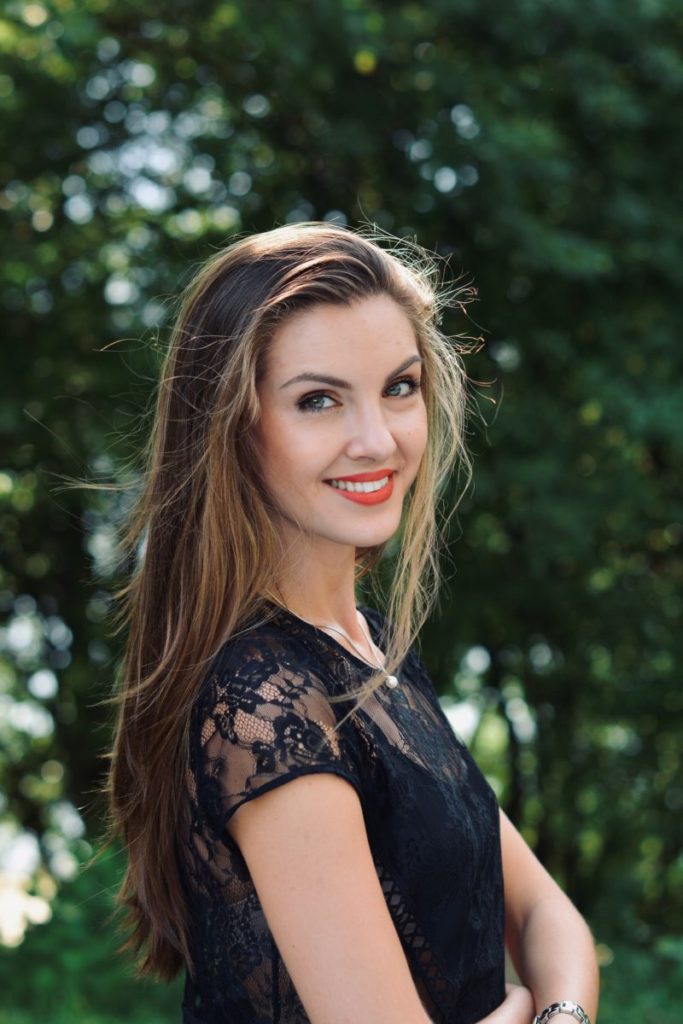MNN trainees take First Place and People’s Choice at the University of Manitoba 2022 3MT Finals

The University of Manitoba recently held its 10th Annual Three Minute Thesis (3MT) competition. Initially developed by the University of Queensland in Australia in 2008, the 3MT has grown to become an internationally known competition for graduate students in a thesis-based program. The 3MT offers students the unique opportunity to showcase their scholarly research under a more engaging format. The challenge is to deliver a presentation intelligible to a broader audience with no background on the research topic in 3 minutes or less. Through this exercise students develop skills to communicate complex information to a non-specialized audience important for meaningful knowledge dissemination and increasing scientific engagement.
The University of Manitoba 2022 3MT finalists included three neuroscience trainees: Pranav Mishra (PhD student in Pharmacology & Therapeutics with Drs. Ben Albensi and Paul Fernyhough), Dr. Chioma Victoria Nwachukwu (MSc student in Physiology & Pathophysiology with Dr. Jeremy Chopek), and Olya Myhalatyuk (MSc student in Pharmacology & Therapeutics with Drs. Tiina Kauppinen and Mike Jackson). Each received at $200 prize for placing in the the top three in their heat.
After 12 engaging 3MTs on Thursday evening, neuroscience trainee Pranav Mishra received the Dr. Archie McNicol Prize for first place. The prize is valued at $2500 and he will go on to compete in the regional 3MT. Winners of the regional competitions (Western, Ontario, Eastern) will subsequently compete in the National 3MT. Dr. Chioma Victoria Nwachukwu was voted People’s Choice by the audience and will receive a UM Bookstore gift card.
The 3MT experience

FIRST PLACE: Pranav Mishra – My research project focuses on the potential of hormones to prevent Alzheimer’s disease. I am currently working with the sex hormone estrogen and investigating how it can decrease inflammation and increase mitochondrial function in the brain to improve the survival of neurons.
I decided to compete in the 3MT competition because I found the format very exciting and thought it would give me the opportunity to share my work with others and also develop public speaking skills. Even though it was very challenging to summarize a complex research project in simple terms, I enjoyed doing it.
After making it through 2 rounds (initial screening and heats) to reach the finals, I felt really excited to present my research alongside other finalists. This was an incredible opportunity and impressive in itself. Listening to other researchers and learning about their work was fascinating. Upon winning the finals, I feel thrilled and very happy. I am glad that my efforts paid off. There is this sense of achievement that I feel right now, and I am glad I could make my advisors, family, and friends proud. I am looking forward to the upcoming western regional 3MT competition and am excited to begin preparing for that. I will also continue working on my research project and experiments so that I can obtain more valuable data that can be used for therapeutic purposes.
3MT is an amazing platform and I would encourage everyone to go for it! It does help you to understand your own research better.
I would like to thank my advisors Dr. Fernyhough and Dr. Albensi for guiding my research. I also want to thank my brother Gaurav, my parents, and my friends for their support.

PEOPLE’S CHOICE: Dr. Chioma Victoria Nwachukwu – My 3MT experience will remain indelible on my mind. To be honest, I had initial reservations about sending in an application; however, after I learnt about the purpose of the competition, I was convinced that I wanted to give it a shot. My research focuses on understanding how spinal electrical stimulation improves walking and organ function in people with spinal cord injury, and how this technology can be improved in the care of affected individuals.
The most challenging part of my 3MT experience was writing my speech. At first, it seemed impossible to translate the complex ideas behind my project (especially the methods) into plain language. I did a lot of brainstorming alone, with family, friends, colleagues, and my supervisors. Gradually, the pieces started coming together as well as my flow of thought. The accompanying slide was created based on my speech, but that was not without input from my supervisors and colleagues. These are the reasons I cannot take them away from my 3MT success story.
As for how best to deliver my presentation, I watched several 3MT videos online not limited to the University of Manitoba. The videos gave me an overall idea what to expect and what is expected in the competition. I feel the 3MT event is a perfect platform for students to share their research, showcase their presentation and communication skills and very importantly, have fun. I encourage every graduate student to apply next year and share in this fun experience.

FINALIST: Olya Myhalatyuk – I started thinking about participating in the 3MT after watching the previous year’s competition. My current lab mate, Chetan Patil, was a finalist, and it was exciting and very interesting to hear about his project in such a fun way. When you are a graduate student, you read a lot of articles and have a lot of scientific terminology in your arsenal. Therefore, when it comes to talking about your project in layman’s terms it can be quite a challenge. The 3MT has a time limit (3 minutes), so you have to think carefully about what you want to say and what to omit. You also cannot speak too fast and have to speak clearly, so everyone understands you. So, I wanted to try it and challenge myself.
Looking back at my preparation I smile, because now it is a really good experience. But at that moment it was quite a hustle! I would rehearse my speech many times during the day and annoy my friends and my boyfriend, so they could provide me feedback on how to improve. Overall, I am happy with how I did in the competition and grateful for my amazing mentors, Drs. Tiina Kauppinen and Mike Jackson. Without their support and guidance, I would not be where I am now.
My research project will provide more insight into microglia-triggered neuroinflammation in the pathogenesis of Alzheimer’s disease. In the long run, my findings could help identify treatment strategies for Alzheimer’s disease and other forms of dementia that are becoming more prevalent worldwide, including in Manitoba.
I enjoyed listening to the presentations of all the 3MT finalists and learning more about the exciting research that is conducted at the University of Manitoba.
| Contributor | —Crystal Acosta | Pranav Mishra, Chioma Victoria Nwachukwu, Olya Myhalatyuk |